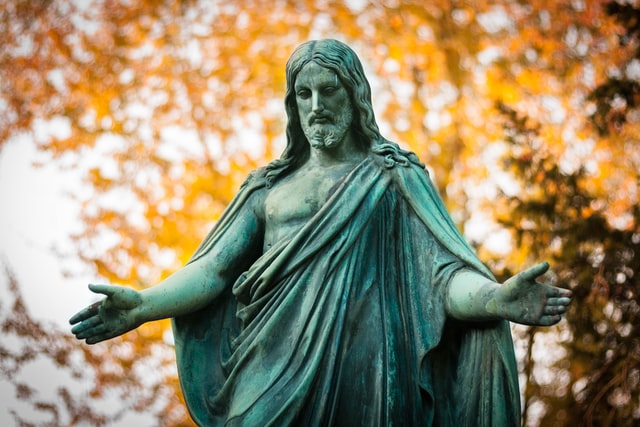Love one another as Jesus has loved us. He has not abandoned the Church, for He has promised: “Where two or more are gathered together in my name, there am I in the midst of them” (Matt 18:20).
Newsroom (17/05/2022 08:07, Gaudium Press) The scene narrated by the Gospel takes place at the Last Supper. Just after Judas has left the Upper Room, Our Lord, in a surge of love and esteem, turns to the Apostles and says:
“Little children, for a short time I am with you. I give you a new commandment: love one another. As I have loved you, so you also must love one another.” (Jn 13:33-34)
It is surprising that in the first sentence of this verse Our Lord refers to the love of one another as a new commandment. We know that since the beginning of humanity, love was already practiced and everyone wanted each other in some way. Where is the newness? Precisely in the form that is indicated to us.
What absolutely changed the way of loving was the example given by Himself, as St. John Chrysostom says: “How did he call this commandment ‘new’ when it is already found in the Old Testament? He made it new by the way in which they would love one another. To this end, he added, ‘as I have loved you.'[1]
As God, he loves each one with a perfect, eternal and absolute love; as well as from his humanity he esteems us as brothers and sisters, the origin of this affection being his divinity.
This love of God for his creatures is mysterious and has its peculiarities, for, as the Creator, he is the only one who can only love what he has made for love of himself, since, in creating, he left his imprint on all beings,[2] including those who are deprived of reason. However, when it comes to rational beings, God did not just put a trace of Himself in them, but made them in His image.[3]
We are Images of God
We can understand this better, to some extent, through an example. The camera enjoys immense acceptance in our society because with it we can keep the memory of some moment in our lives that we would like to relive. Now, the photograph is only an inanimate reproduction of events, and it remains true that it retains something of what is happening. We are “photographs” in which the Three Persons of the Holy Trinity take pleasure in recognizing their image and in loving themselves reflected, contemplating in act the plan conceived from all eternity for each one of us.
This truly sublime starting point opens new perspectives for human coexistence, which begins to be guided by the mutual search, in others, of the reflections of the goodness that exists in God to an infinite degree. Our neighbor should be seen by us as a mirror of the Holy Trinity, a masterpiece or shining precious stone, of incalculable value, carved by divine power.
From this is born the authentic consonance, which is the first spark of love between souls called to unite in the face of an ideal towards which they look in harmony, as Saint-Exupéry subtly noted when defining the superior form of union that arises when “men of the same group experience the same desire to win.”[4] If among people who love God there is an intermingling that has its origin in this holy idealism, the practice of the new commandment is proven.
Let us not forget, however, that the true love of one for another must be hierarchical, since God has placed reflections in souls unequally, giving each one a unique aspect, in a variety that manifests the incomparable richness of the Creator.
The Distinguishing Mark of true Christians
In the last verse of the Gospel, our Lord goes one step further and declares the form of love taught by Him to be the distinguishing factor of those who truly follow Him:
“By this all will know that you are my disciples, if you have love for one another.” (Jn 13:35)
When people outside the Christian community see such authentic love, they realize that God Himself is present there. And although He has gone to Heaven, He has not abandoned the Church, for He has promised: “Where two or more are gathered together in my name, there am I in the midst of them” (Matt 18:20).
The fact that we live under the influence of the supernatural love of which He gave us an example is a way to prolong His presence on this earth. We must, therefore, guide, support and instruct with disinterestedness those who also love Him, without any sentimentalism, romanticism or selfishness, but with a love so pure that it causes men and even the Angels themselves to marvel, to the point that the latter can find on the face of the Earth a limpid mirror of the conviviality of the elect in the beatific vision.
When, in place of this love of which Our Lord gives us the example, we find slander and envy, our eyes must be opened: these are things that cannot come from someone who follows Our Lord. Whom are they following? For now, only God knows.
Taken, with adaptations, from “New Insights on the Gospels”, by Msgr. João Scognamiglio Clá Dias, v. 5, p. 334-338.
[St. John Christostom, Homily LXXII, n.3. In: Homilies on the Gospel of St. John (61-68). Madrid: Ciudad Nueva, 2001, v.III, p.130.
[2] Cf. ROYO MARÍN, OP, Antonio. Dios y su obra. Madrid: BAC, 1963, p.451.
[3] Idem, ibidem.
[4] SAINT-EXUPÉRY, Antoine de. Vol de nuit. Paris: Gallimard, 1931, p.104.

































